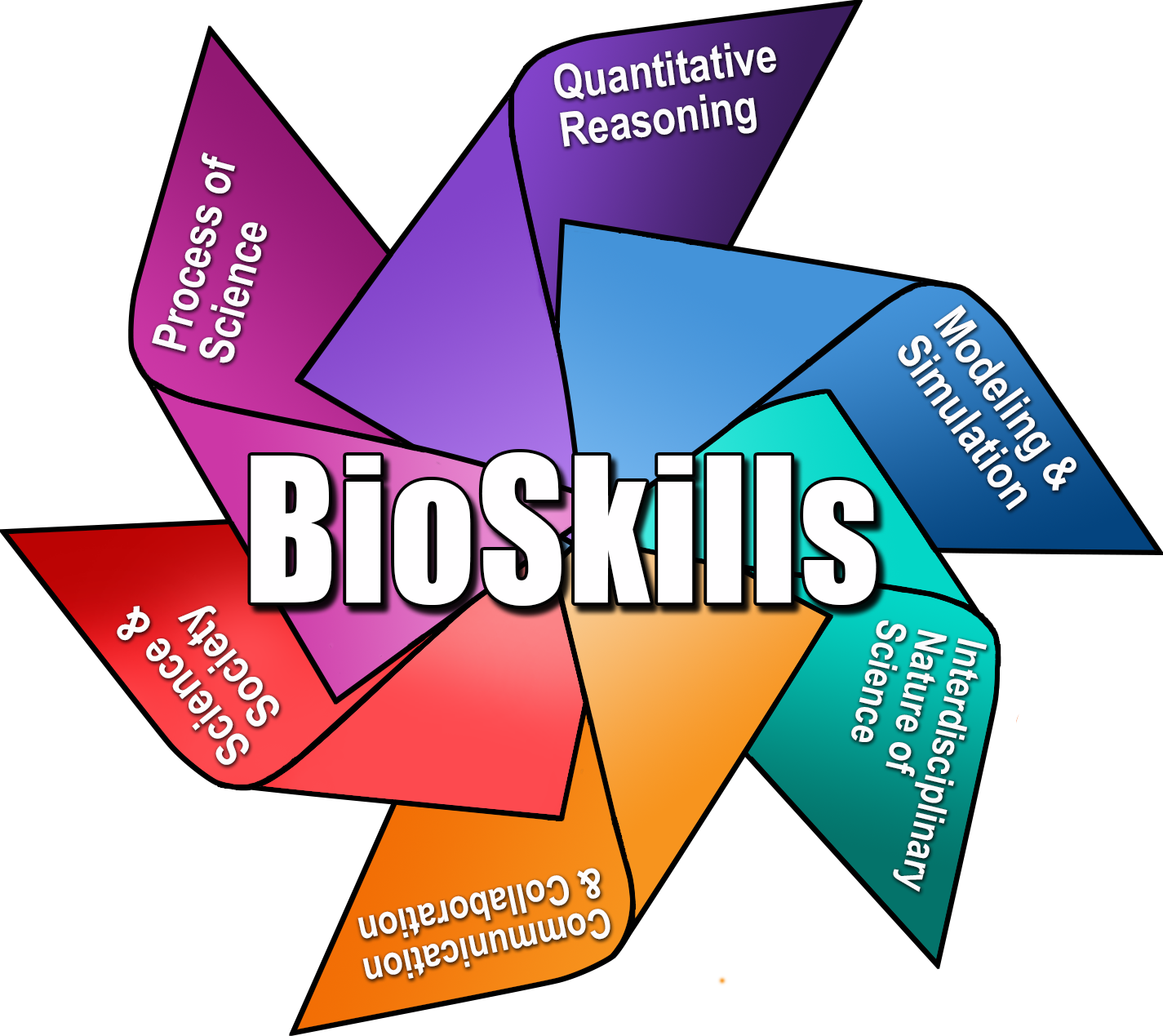About the Group
Public Description

To be competitive in a modern STEM career, biology students need training in an array of competencies, or skills. These competencies include scientific practices, such as experimental design, modeling, and quantitative reasoning, and “soft skills”, such as teamwork, ethical decision making, and scientific communication. The six core competencies described in the 2011 report “Vision and Change in Undergraduate Biology Education: A Call to Action” established a framework of skills-focused learning goals agreed upon by over 500 stakeholders with modern biology jobs and education in mind. The next step in this nationwide educational transformation process is to update undergraduate curricula to ensure adequate training in the core competencies. This will require review, mapping, and revision of existing curricula in alignment with core competency goals.
Taking a backwards design approach to curriculum development, we set out to elaborate the core competencies into a nationally validated set of learning outcomes (called the “BioSkills Guide”) that describes what skills general biology majors should have by the time they graduate. To develop the guide, we employed web surveys, semi-structured interviews, and interactive workshops to gather feedback from over 200 biology educators with experience teaching a range of biology subdisciplines, course levels, and student populations. We iteratively revised the guide following five rounds of in-depth feedback, and then nationally validated the final draft using a survey of over 400 additional biology educators. We envision the guide being a widely valuable tool for teaching and mapping of core competencies across the biology curriculum at diverse undergraduate institutions.
To view or download the BioSkills Guide, see below:
BioSkills Guide
Version: 5.0
